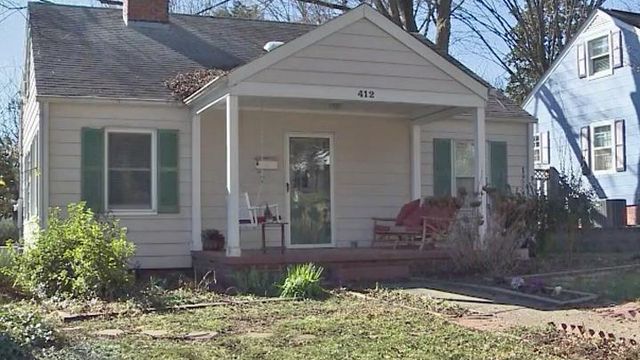Raleigh puts backyard cottages on back burner
Councilor Bonner Gaylord sought to try out backyard cottages in one neighborhood before allowing them city-wide. That plan is tabled for now.
Posted — UpdatedCouncilors voted 7 to 1 to Feb. 12 to nix backyard cottages, also known as granny flats or accessory dwelling units. They’re removing the option from the Unified Development Ordinance (UDO) in order to do more research on the feasibility of implementing the option effectively.
Councilor Bonner Gaylord voted against removing it from the UDO, which is a complete rewrite of the city’s zoning code.
He wanted to implement a pilot program with one willing neighborhood to act as a backyard cottage guinea pig, which would help city staff recognize any potential problems or negative impacts.
City planners included the cottages as a way to diversify the city’s housing options. They have since emerged as one of the most hotly debated aspect of the UDO.
Even those in favor of the option, like Gaylord and Councilor Mary-Ann Baldwin, had questions about how to move forward with backyard cottages.
“I just don’t think we’re ready to move forward with this,” said Baldwin, who supports the option, especially for those who care for elderly family members. “If I could have a backyard cottage, I would.”
Supporters say the cottages can be used by residents who have adult children or elderly relatives who don’t have the financial means or ability to live on their own. Residents could also rent out the cottage to college students, young couples or divorcees to supplement their income.
Backyard cottages give people the opportunity to live in a single-family neighborhood even if they can’t afford to purchase a home in the area.
But, opponents see backyard cottages as another way for bad landlords to make a quick buck and drive down neighborhood home values.
While backyard cottages must meet strict design guidelines and state housing codes, opponents say that these structures will be poorly built and poorly maintained.
The biggest problem, they say, is that case law states that the City can’t require the owner live on the property, either in the main house or in the cottage.
Opponents say requiring that the homeowner live on the property, either in the main house or in the cottage, would keep some level of accountability.
The backyard cottage debate opened up more discussion about accessory apartments, such as those located above a garage or otherwise attached to a single-family home.
Some similar issues have cropped up, prompting Councilors to remove the option completely from the UDO. The final vote was 6 to 2 with Gaylord and Councilor John Odom voting against removing accessory apartments.
Today, a homeowner can add an accessory apartment with a square footage of up to 25 percent of the total square footage of the house. The UDO would have limited that max to 700 square feet and require outdoor entrances. Only four unrelated people would have been allowed to live on the property.
“Basically what you’ve done is you’ve turned a single family home into a duplex,” Crowder said.
Crowder argued it increases the number of renters in a neighborhood and would discourage future homeownership.
Accessory apartments are allowed today, but the problem is the now-void owner occupancy requirement.
“They have now opened this up as a different animal,” Crowder said of the court ruling.
Once the UDO is adopted, homeowners will no longer have the option of adding an attached apartment onto their properties. Homeowners won’t be forced to remove existing accessory apartments. They would be grandfathered in as legal non-conforming uses, much like the existing backyard cottages scattered in downtown Raleigh.
But, if another tornado rolls through Raleigh and destroys the apartment, the owner won’t be allowed to rebuild it without approval from the Board of Adjustment.
City Councilors adopted much of the new zoning code at their meeting Monday. Changes go into effect Sept. 1.
Copyright 2024 Raleigh Public Record. All rights reserved.





